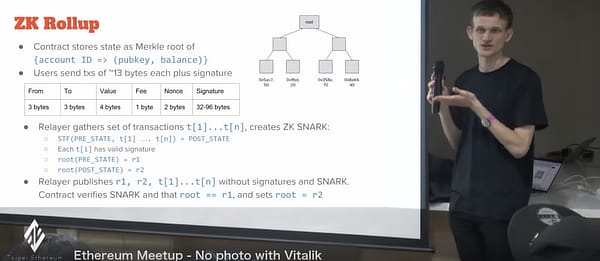
2018-8-30 17:32 |
With all the hype about blockchain and specifically, smart contracts, there is one thing that is consistently overlooked. Smart contracts cannot, in their current form, replace actual contracts. However, Ricardian smart contracts may hold the key. In this article, we examine what smart contracts can – and cannot – do. And, why Ricardian smart contracts may well be the future of blockchain-based legal agreements.
What Isn’t a Smart Contract?Back in 1994 when Nick Szabo first proposed the concept of smart contracts, blockchain was a mere glint in the eye of Satoshi. The launch of blockchain has since enabled the development of smart contracts. Now, the idea is subject to a crazy level of hype. Excited headlines inform us that smart contracts will do away with the need for lawyers. Even lawyers themselves are musing over it.
In considering whether or not this is ever likely to be the case, let’s take a further look at what Szabo actually wrote about smart contracts:
“A smart contract is a computerized transaction protocol that executes the terms of a contract. The general objectives of smart contract design are to satisfy common contractual conditions (such as payment terms, liens, confidentiality, and even enforcement), minimize exceptions both malicious and accidental, and minimize the need for trusted intermediaries. Related economic goals include lowering fraud loss, arbitration and enforcement costs, and other transaction costs.”
So from the highlighted sections above, we can take away two things:
A smart contract by itself is not an actual contract. It just executes the terms of an already-existing contract. Members of the legal profession need not start lining up in the social security office just yet. Szabo sees it that they will still have a job, albeit a more minimal one.She seems relaxed about blockchain replacing her job.
There is an argument to say that the execution part could do away with lawyers. After all, if we can execute contracts automatically according to their agreed terms, lawyers don’t need to adjudicate because nobody can renege on the terms, right?
In principle, yes. But who relies the most on contracts? Companies and other legal entities. And businesses have not (yet) been flocking in droves to adopt smart contracts.
Why Businesses Haven’t (Yet) Embraced Smart ContractsFirstly, programming languages codify smart contracts. Although they are relatively easy for developers to write, they cannot be read or audited by humans who don’t know programming languages. So businesses cannot rely on smart contracts given that current business processes are subject to compliance requirements involving auditing by humans.
Secondly, platforms for developing smart contracts are mostly still on public blockchains such as Ethereum or Cardano. This creates a problem for a business that wants to protect its corporate secrets. They often do so using the very same contracts they’d be transitioning into smart contracts on a public blockchain. This is not insurmountable, given that permissioned blockchains are now starting to gain traction.
Finally, the execution of contracts to the very last letter, on an unalterable blockchain, is not necessarily desirable for business. Companies operate in real-world environments and must react to evolving circumstances. This means that contractual agreements often change. Smart contracts don’t offer that flexibility.
Ricardian Smart ContractsFinancial cryptographer Ian Grigg first proposed the Ricardian Contract in 1994. It’s essentially a type of contract that has exists in two formats. A plain text format is the same as an everyday contract document, readable by humans. A digital duplicate, written in code, is readable by a machine.
The Ricardian Smart Contract “Bow-Tie” model
In 2015 Grigg updated his work on Ricardian contracts to include the concept of Ricardian smart contracts. With Ricardian smart contracts, it’s possible to create a legally binding agreement, readable and auditable by humans, as well as coded for automatic execution. It makes a smart contract more reflective of real-world contracts as they are today. This is because it includes the part that comes before the implementation of the terms – the legal agreement itself.
Ricardian smart contracts could, therefore, allow businesses to adopt smart contract technology, ensuring that they fulfill legal and compliance obligations.
Ian Grigg discusses his work on Ricardian smart contracts in the video below:
Applying the ConceptsRicardian smart contracts are already used in different forms by some projects including the decentralized marketplace OpenBazaar and the R3 Corda system. However, some are developing the concept further.
SciDex is building a blockchain-based protocol that aims to deploy Ricardian smart contracts but to include an element of adaptability in them. This will allow amendments or rewrites to incorporate newly agreed terms in response to emerging or unforeseen situations.
Another project, BOSCoin, is implementing what it calls “trust contracts.” These are contracts also designed to be read by either humans or machines. These trust contracts are developed using a language that is deliberately engineered not to be Turing-complete. This is similar to the DAML language Digital Asset uses to customize distributed ledgers for the financial industry. Turing-complete programming allows enormous flexibility in the development of algorithms, but on the flip side, it leads to unintended consequences as in the notorious hack of The DAO.
Finally, Kadena has developed a smart contract programming language, Pact, that is readable by humans and can be written directly onto a blockchain.
Final ThoughtsBlockchain development is still in a relatively early stage of maturity. It’s likely that the slow pace of smart contract adoption by businesses reflects that. However, the evolution of Ricardian smart contracts could mean that we soon start to see companies moving towards smart contracts. The use of smart contracts is unlikely to render the legal profession obsolete. However, it may well change the recording and implementation of contracts compared with today.
The post How Ricardian Smart Contracts Enable Blockchain Adoption appeared first on CoinCentral.
origin »SmartCash (SMART) на Currencies.ru
|
|






















